‘Ayahuasca is changing global environmental consciousness’

David Hill: Interview with US scientist Dennis McKenna on powerful Amazon hallucinogen, plant intelligence and environmental crises
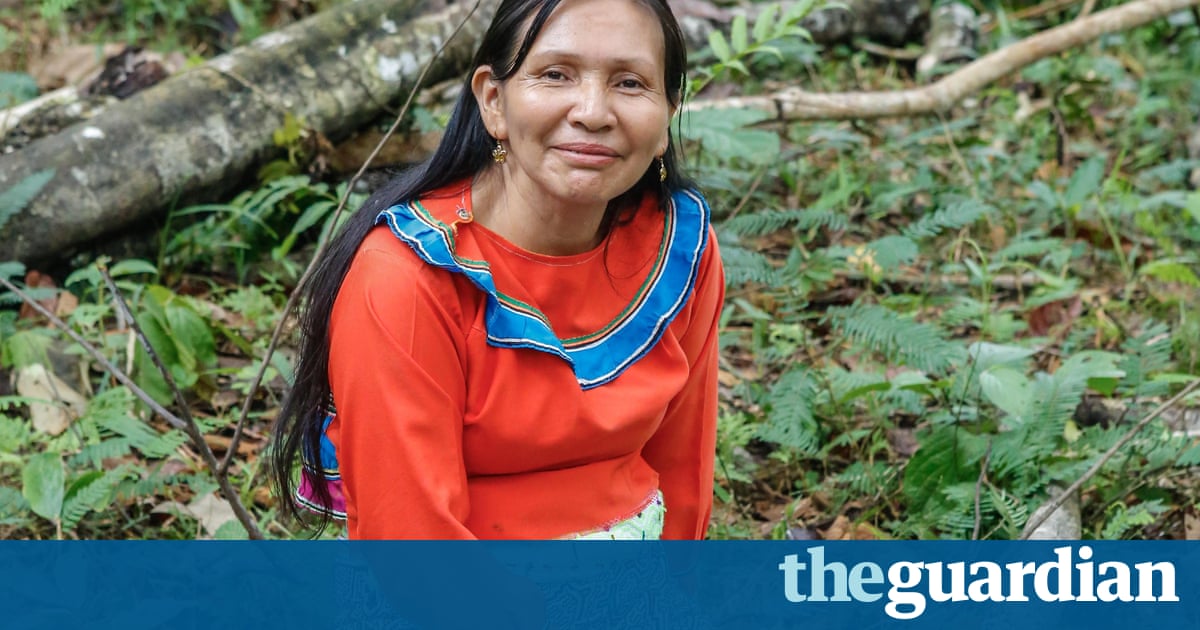
Ayahuasca, as it has come to be known internationally, is a plant medicine that has been used in the Amazon for centuries for healing and spiritual purposes. Renowned for the often extraordinary visions it induces – not to mention the deep vomiting – it is made from an Amazonian vine known to western science as Banisteriopsis caapi and usually at least one other plant.
Over the last 25 years or so ayahuasca has gone global, with many 1000s of people travelling to Peru and other South American countries to drink it, and expert healers – curanderos, shamans, ayahuasqueros, maestros – travelling abroad to hold ceremonies. Many drink ayahuasca because theyre looking for healing, some are just curious, some mistake it for a recreational drug.
One of ayahuascas pioneer scientific researchers is Dennis McKenna, a US ethnopharmacologist and younger brother of the legendary ethnobotanist and author Terence. Some years ago, in an article titled Ayahuasca and Human Destiny published in the Journal of Psychoactive Drugs, McKenna emphasised the contribution ayahuasca can make to physical and spiritual healing – if it is ever afforded its rightful place in medical practice – and addressing potential environmental catastrophe.
[Ayahuasca is] the conduit to a body of profoundly ancient genetic and evolutionary wisdom that has long abided in the cosmologies of the indigenous peoples of the Amazon who have guarded and protected this knowledge for millennia, who learned long ago that the human role is not to be the master of nature, but its stewards, McKenna wrote. Our destiny, if we are to survive, is to nurture nature and to learn from it how to nurture ourselves and our fellow beings. This is the lesson that we can learn from ayahuasca, if only we pay attention.
Below are edited excerpts from an interview between McKenna, in the US, and the Guardian, in Iquitos, a city in Perus Amazon which the scientist calls the epicentre of the global ayahuasca movement:
DM: What can [ayahuasca] do for the environmental movement? I think a lot of people, especially if they come to South America, come away with a really renewed appreciation for our connection to and the importance of nature. I think that ayahuasca is a catalytic influence in changing global environmental consciousness, which is something thats got to happen if were going to get out of the mess were in. The main challenge we have as a species is – getting on the soap-box for a minute – we have forgotten our connection to nature. Weve come to the conclusion that we own nature, it exists for us to exploit, and were busy doing that. Were destroying it in the process. Were destabilising all of these global mechanisms that keep the biosphere habitable by life. I think ayahuasca is waking up a lot of people and reminding them that, No, thats not the way it is. You monkeys are not running the show. The plants are running the show, by sustaining life on earth, if nothing else. There needs to be a global shift of consciousness. People need to understand this before they can really begin to change, and so in that sense I think ayahuasca is an ambassador from the community of species. The message is basically, Wake up, you monkeys! Youre wrecking the place! Its very important and interesting that so many people come away with this strong message that theyve really been moved and touched by something that they feel is an intelligent entity – an intelligent representative of the natural world.
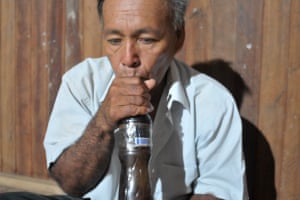
DH: Why is that? Why does it make clear to people our connection to nature? How does it do that? Because it teaches us that the plants and trees are alive, in a sense, and are intelligent and sentient?
DM: I dont think there is a scientific answer. Its more like a philosophical answer, or a spiritual answer. This is the challenge of our time: we have separated ourselves from nature and we really need to re-understand that relationship, and as part of the community of species, which we are – we may deny it, we may forget it, but we are part of the community of species. And I think that the community of species is concerned about this problematic primate that they have let loose on the planet. As a species, we are simultaneously the most dangerous thing that has appeared in the course of evolutionary time and were also the most promising. Indigenous people have this perspective that [ayahuasca and other plants] are teachers. They exist to give us guidance and wisdom – and I believe that, actually. [Indigenous people] have been the stewards of the plants, the stewards of this knowledge, but I think that now things are getting desperate on a global scale in terms of the environmental catastrophes that are looming. I think theres a sense in the community of species weve got to step up the game and these are their tools to contact human beings and basically say, Pay attention because you need to re-understand your relationship to nature, and once thats understood then you have to start making changes. I think one of the challenges of our species – one of our problems – is that were very, very clever. We can do amazing things with our big brains and our opposable thumbs and our ability to use and create technology. No doubt that were clever. The problem is were not wise – and thats the whole thing. I think the message from ayahuasca and all these other teacher plants is, Wise up. Literally: Get wise. So that we can use the technologies weve invented in a way that supports and sustains life, rather than threatens life. Thats really the message. Its a profound message, but its a simple one.
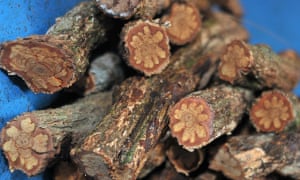
DH: Do you feel Peru is the centre of what you call the global ayahuasca movement, or is it more Brazil?
DM: I think its Peru. In terms of its interfacing with the West, or Western culture, in Brazil, where you find it is through churches [like the Uniao do Vegetal], which have adopted ayahuasca as their sacrament. I dont think theres a big ayahuasca tourism industry in Brazil. It may be happening, but Iquitos is definitely the epicentre. People have been coming there regularly since about 1995 and it has grown a lot.
DH: Do you think more clinical studies [on ayahuasca] need to be done? That that would be positive for ayahuasca in general?
DM: I dont need clinical studies to convince me ayahuasca is good medicine, that its helping people, but you can publish them [and its] a good way to convince skeptical colleagues in biomedicine, rather than just some guy raving about how great it is. . . This also grades over into some ethical issues. There are multiple ones. This is something that exists in the context of traditional medicine. It has already, in a certain way, been co-opted by the West through the ayahuasca tourism phenomenon and so on. Is it ethical to try and take a medicine like this and stuff it into a biomedical research structure? Is that the right way to approach it? Im not saying that it is and Im not saying that it isnt. I just think that we have to be clear that there are aspects here of taking something out of its traditional context. Can it be used that effectively in biomedicine, or do you need the ceremonial ambience? It goes back to these hoary principles of setting. Which are very important. Does it have to be traditional? I dont think so, but you could say, Well, why not? Because this is a Peruvian patrimony. Peru has declared ayahuasca a national patrimony, and you could say, Well, if youre going to develop therapeutic protocols and programs around ayahuasca, why not do them in Peru? Youre not taking it away from anybody. Youre actually creating opportunities for Peruvian doctors, scientists and curanderos to work together to develop therapies that can help people – essentially taking a page out of the idea of medical tourism. Tourists are going to come to take ayahuasca for psycho-spiritual reasons. Why cant they come and take it for medical reasons? Thats just an idea.
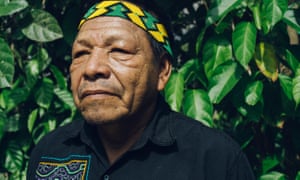
DH: Medical tourism. Have you heard that term used by anyone else [regarding ayahuasca]?
DM: Medical tourism is kind of a buzz word now, especially in the States because of the crazy cost structure of so many medical procedures. . . Ayahuasca therapy is not something you can get [here], at least, not legally, so if you want to access it you can go to South America. In that sense its medical tourism. . . I think the ayahuasca tourism thing is definitely a two-edged sword. Its having a lot of negative impacts on indigenous communities, but at the same time its benefitting a lot of people and, in some ways, keeping the tradition alive. But its also changing that tradition, as people start to cater to Western tastes and needs. So what needs to develop, I think, is some kind of a fusion of traditional and medical practices that takes the best from both and creates some kind of new paradigm. I hope thats where it goes.
DH: What you said there about negative impacts on indigenous communities. . . What kind of impacts?
DM: There are multiple ones, but a lot is related to economics: the foreign tourists come to a place like Iquitos with their pockets full of money and their values and their interests and it can completely skew the economic situation. . . [But] it can also be good. Economic influx in communities can be a good thing if its properly done. Another aspect is that most of the centres [offering ayahuasca] around Iquitos arent owned by Peruvians. Theyre owned by foreigners. Thats fine. Theyre the ones that have the resources to set these things up, but then theres a temptation to not treat their people well, not compensate them well, and then theres the issue that you get in any kind of cult-like situation where you have a very powerful medicine, you have people coming in to have these experiences, often theyre put in a vulnerable situation because the whole point of the exercise is to go to a place where you can open up and examine your deepest, darkest fears and secrets and so on. If you happen to be with a curandero who doesnt necessarily have your best interests in mind – there are plenty of those – you can be mistreated. As you know, sexual abuse of foreign tourists in ayahuasca centres is not uncommon. Ayahuasca, like anything else, is a technology. Its a tool. It really doesnt have any inherent moral qualities. It can be used in really positive ways and really negative ways because the ethics of it originate in the people who use it and how they use it and what they use it for.
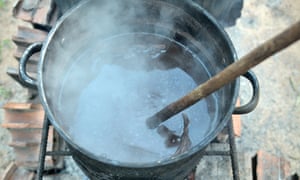
DH: Just to pull back a second. If asked, Are plants intelligent, would your answer to that be, Well, obviously, ayahuasca is a good example?
DM: Yes, ayahuasca is intelligent. Yes, plants are intelligent. Not in the way that we are, but in some ways theyre much smarter than we are. It depends on how you want to define intelligence, right? If intelligence doesnt require nervous systems, it it doesnt require brains. . . if intelligence is when something reacts to their environment in a way that optimises its adaptation. Under that rubric plants are definitely intelligent – but not like we are. They dont have brains and they work on different time-scales. This is part of a co-evolution were seeing. Co-evolution works on vast time-scales and ayahuasca has only been known to the West for less than 150 years. Thats a tiny slice of historical time. . . I think were only beginning to learn how to use ayahuasca, how we use it as a tool to wake up other people because, if you havent noticed, theres a great deal of willful ignorance, at least, in the States, particularly with regard to environmental issues. Our politicians – at least, the Republican side of the equation – are proud of the fact they dont know anything about climate science and they deny that it is even important. This is the attitude that needs to be changed. Stupidity is not going to solve our problems and yet theyre behaving as though it will. . . Are you familiar with the author Michael Pollan?
DH: Yes. Food Rules [the title of a book by Pollan].
DM: He wrote a wonderful article in The New Yorker. The Intelligent Plant. I think it really well summarises some of the issues right now that science is looking at, in terms of plant intelligence. I mean, a few years ago, you bring that up, youd just be laughed at. Now, not so much. Theres really compelling evidence that plants are capable of planning, remembering, dealing with other plants and other things. . . Something else were learning about intelligence: you dont have to have a brain. Brains are over-rated, you know. What you have to have is neural networks – very extensive networks of connections. If you look at eco-systems, if you look at forests, if you look at things on the macro-scale, these are tremendous, enormous neural networks. You can think of them from that perspective, like the connections between the roots of plants and the fungi in the soil. These are mycelial networks that can sometimes cover many miles. The biggest organisms in the world are actually mushrooms, believe it or not. Not psychedelic ones, as far as we know, but theyre mushrooms that grow in the forests in Oregon, places like this. Theyre a cubic mile in extent. Theyre 80,000 years old. Because the mushroom part is just the reproductive body. Whats really going on is the mycelial networks in the soil: the hyphae of the fungi is closely associated with the roots of plants, so its a very, very close symbiotic association. This is the intelligence of plants. This is the real thing. This is not just a romantic notion. This actually is real. Its sometimes called the Gaia Hypothesis, originated by James Lovelock, a geophysicist and geochemist. . . His basic idea is that the entire biosphere is regulated, working together in such a way to keep it within these fairly narrow parameters that will support life.
DH: One more thing on plant intelligence. . . There was a book recently published, Brilliant Green, written by an Italian, Stefano Mancuso.
DM: Hes one of the leading researchers on this right now.
DH: I read the book by Mancuso, which really got me thinking. One of the things he doesnt address is the idea that plants teach humans, that there is that kind of relationship.
DM: Its a bit of a leap for him, but it is definitely where this is trending.
DH: Are you continuing with your scientific research into ayahuasca at the moment?
DM: Well, not so much, but Im interested in moving in to the therapeutic area and I would like to do some structured chemical, clinical studies. But I want to do them in Peru. And I organize retreats in the Sacred Valley [in the Cusco region] at Willka Tika.
DH: Can I just finish with one more question, Dennis? You say in Human Destiny [the article published in the Journal of Psychoactive Drugs] You monkeys only think youre running things. And thats quoted, as if someone else said it. Is that what your brother Terence said, or is that what you said at some point?
DM: Its what the ayahuasca said.
DH: To who?
DM: Me.
DH: Ok. And what does it mean? Is the play on You monkeys only think youre running things? or am I reading too much into it?
DM: When I took ayahuasca with the Uniao do Vegetal for the first time, in Sao Paulo in 1991, I had a very impactful ayahuasca experience in which I was shown photosynthesis at the molecular level. Being a plant biochemist I sort of understand these processes. It was extremely inspiring to me at the time. The take-home lesson was, You monkeys only think youre running the show. Its in my book [The Brotherhood of the Screaming Abyss].